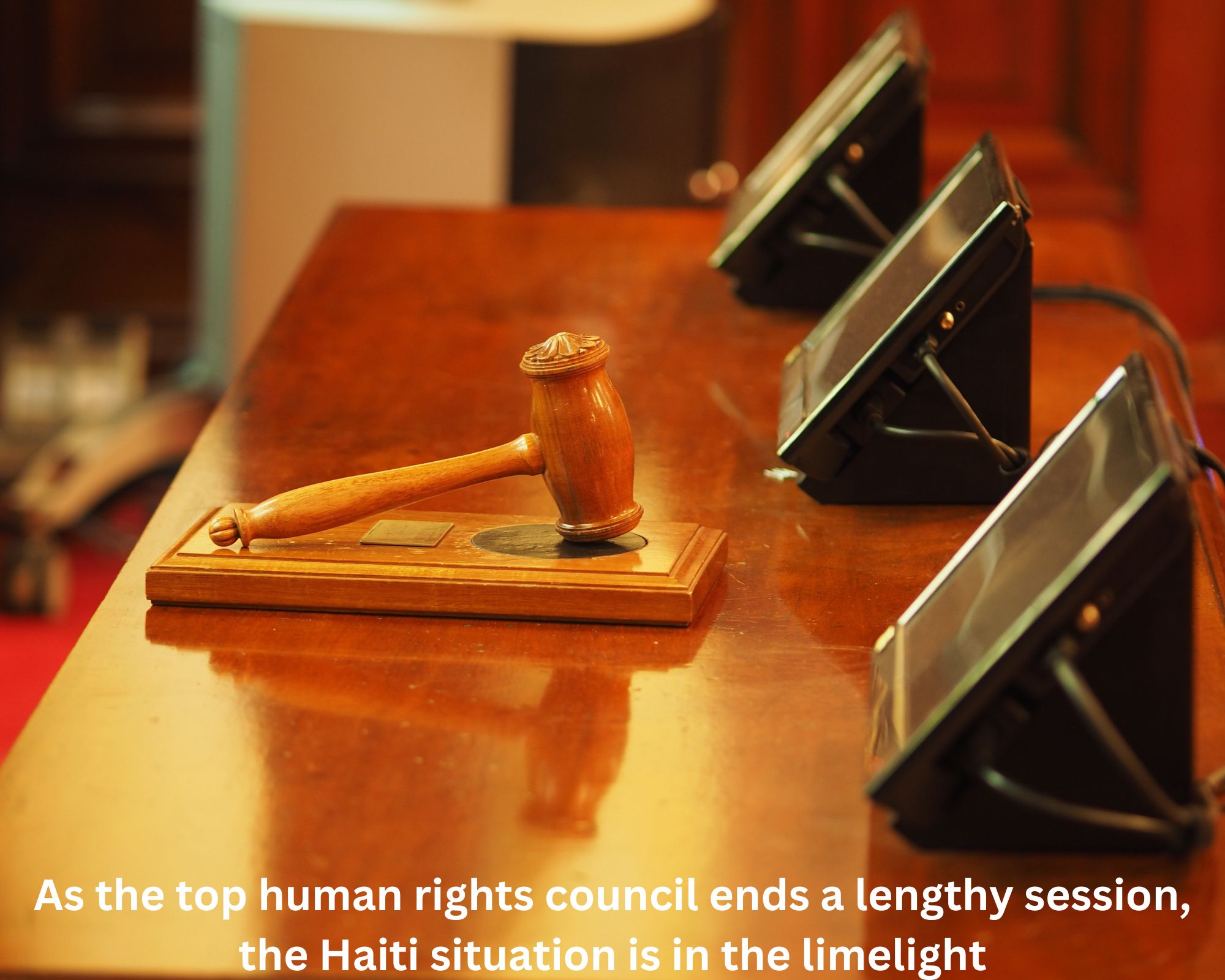Summary:
-
On Tuesday, the forum approved resolutions on the human rights situations in Iran, Belarus, Syria, and Ukraine.
-
Notably, it resolved on Monday to extend the three-member Commission on Human Rights in South Sudan’s authority for an additional year.
-
The vote occurred on the same day the Commission’s most recent report, which denounced the apparent impunity for heinous ongoing abuses against civilians, was released.
-
The Council also decided to extend the 2022-established Group of Human Rights Experts mandate in Nicaragua for another two years.
-
Earlier this month, the three experts warned that as part of its campaign against political dissent, the Nicaraguan government was committing crimes against humanity.
The Council had established an independent expert mission on Haiti in 1995, but it was dissolved in 2017.
Haiti sponsored the present resolution, which calls for “organised and focused international intervention.”
Specifically national abuses
The Council investigates human rights abuses in particular nations as a subsidiary body of the UN General Assembly as part of its regular agenda. On Tuesday, the forum approved resolutions on the human rights situations in Iran, Belarus, Syria, and Ukraine.
Without a vote, resolutions on human rights in Burma and the Democratic People’s Republic of Korea, also known as North Korea, were approved.
Environmental momentum
The Council also decided on Tuesday to reinforce the global agreement surrounding the right to a clean, healthy, and sustainable environment.
The motion, adopted without a vote, urged States to ensure the protection of human rights when tackling environmental issues, to enable access to justice, “including to an appropriate remedy,” and to safeguard ecological activists.
Although the 47-member body has previously adopted environmental resolutions, the most recent text builds on two historic resolutions adopted by the Human Rights Council and the General Assembly in 2021 and 2022, enshrining for the first time the universal right to a clean, healthy, and sustainable environment.
Only last week, in another landmark vote, the UN General Assembly requested that the International Court of Justice (ICJ) rule on nations’ legal obligations regarding climate change, accelerating the global movement towards a foundational legal framework for climate justice.
40 or more resolutions
On Tuesday, the 47 Member States of the Council were ready to conclude a lengthy five-and-a-half-week session by voting on 43 resolutions.
Notably, it resolved on Monday to extend the three-member Commission on Human Rights in South Sudan’s authority for an additional year. The vote occurred on the same day the Commission’s most recent report, which denounced the apparent impunity for heinous ongoing abuses against civilians, was released.
The Council also decided to extend the 2022-established Group of Human Rights Experts mandate in Nicaragua for another two years. Earlier this month, the three experts warned that as part of its campaign against political dissent, the Nicaraguan government was committing crimes against humanity.
Conversation and agreement
The consensus was reached on the renewal of the prohibitions on the sale, sexual exploitation, and sexual abuse of children, as well as the bans on human rights advocates, minorities, torture, freedom of speech, sufficient housing, and migration.
Volker Türk, the UN High Commissioner for Human Rights, urged the members of the Council to overcome differences “through solidarity and genuine dialogue, working across geopolitical divides with a clear vision to advance the needs of every country and the rights of all” at the beginning of the Council’s current session on February 28. This year marks the 75th anniversary of the UDHR.
Mr Türk stressed that the “essence of our shared language” is the “willingness to engage in true discussion – a drive to discover common denominators, even in the face of passionate disputes.”

